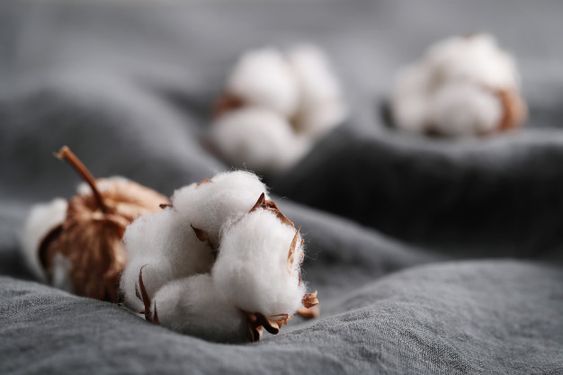
Organic cotton clothes eliminate allergies and rashes...
With synthetic fabrics, we come to significant problems with allergies and skin irritation. You don't have to have sensitive skin to understand that synthetic fibers can cause anything from minor discomfort to full-blown allergy symptoms.
Another of the many benefits of wearing organic cotton clothing is that it eliminates chemical retention; therefore, those who suffer from allergies or have certain specific sensitivities to certain substances will not be affected. Suppose you ask some cotton clothing enthusiast about organic cotton clothing.
In that case, you will most likely also get the answer that organic cotton clothes simply smell a little better than their regular cotton rivals.

Organic cotton is the safest fiber for babies.
It is no coincidence that organic cotton clothing is one of the most recommended clothing materials for babies. After all, no one has more delicate skin that is prone to breakouts than babies.
Did you know that their skin is up to 5 times thinner than ours?
Benzothiazole and many of its derivatives are often used in common cotton clothing that is sprayed with cyanine dyes, herbicides, insecticides, biocides and fungicides. It is a known skin allergen. And that's probably the biggest reason why parents should take advantage of organic cotton clothing.

Is organic cotton softer than regular cotton?
The simple answer is YES and there is a pretty simple explanation. To understand how cotton fibers work, we need to look at how they are picked.
While conventional cotton is mostly picked by machine, organic cotton is exclusively picked by hand. What exactly does that mean? The hand picking process ensures that no fiber is damaged during harvest.
Regular cotton, on the other hand, is in high demand. The fiber is usually machine-selected to suit each company's needs. Thus, it disturbs the cleanliness of the fibers and also damages them during the combing process. So yes, organic cotton is much softer than regular cotton clothing due to the longer fibers.
This is really the most important part of the manual picking process; ensures that these fibers do not break or weaken, further demonstrating the promise of organic cotton's softness and durability.

Farmers' health
There are clear benefits that organic cotton provides to farmers and their families by avoiding the contamination and health risks associated with pesticide use.
According to the World Health Organization, 72,000 cotton growers are poisoned by pesticides every year, and 20,000 of them even die. Of course, pesticides also affect the farmer's family, for example when drinking water contaminated with chemicals.
Organic cotton also helps farmers by providing safer farming conditions. Certifications such as GOTS have social and environmental criteria that certified organizations must meet,
and thus create a safer environment for farmers. Many organic cotton certifications require suppliers to ensure worker safety and rights.
GOTS certifications also require strict rules prohibiting practices such as forced or child labor.
Is organic cotton more expensive?
It's true that organic cotton is expensive—at least a bit more expensive than regular cotton.
The answer to the WHY question is again quite simple. Although farming and production costs are much lower, which greatly helps local farmers, consumers may encounter a higher price. In addition, the price of organic cotton is higher due to intensive labor. Since no herbicides and pesticides are used,
farmers hand-hoe each cotton crop to get rid of weed growth during the growing process. It is a well-known fact that organically grown plants usually produce less yield,
which dramatically affects supply and demand because there is far less organic cotton available than conventional cotton. Unlike conventional cotton, there is also a lack of supply of organic cotton in the market, which increases its price. To all this, you need to add the cost of organic cotton clothing certification. Compliance testing and certification is very expensive, especially when you consider that these certifications should be renewed every year.
But if you really want your new purchases to be not only safe for your health, but also help protect the environment along with an ethical clothing industry, investing in organic cotton clothing may be the best choice for you. Your clothes will not only last longer, but will also be softer, more comfortable and hypoallergenic.

